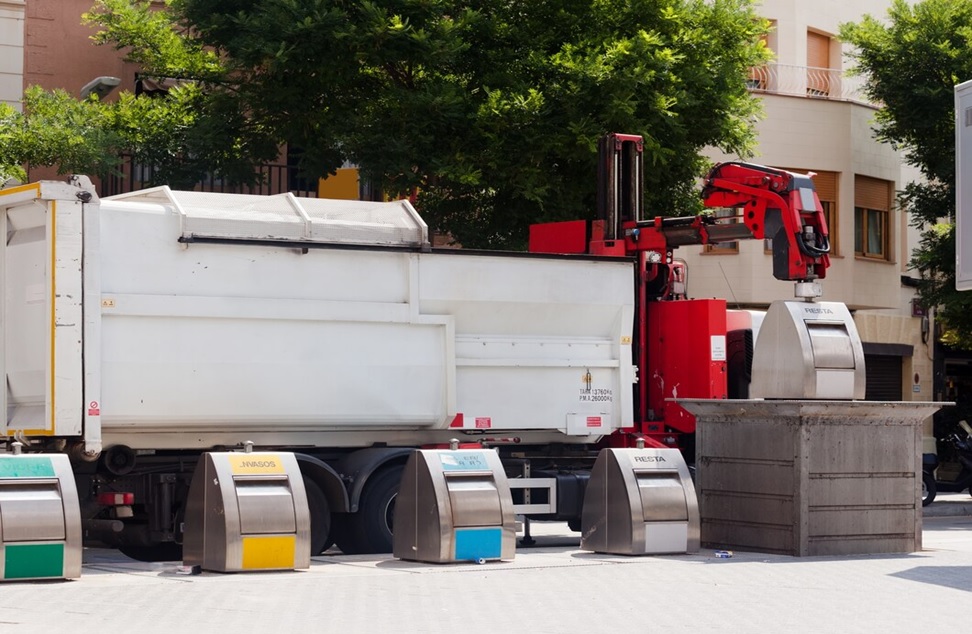In today’s global landscape, sustainable business practices have become more than just a trend—they are a necessity for companies looking to reduce their environmental footprint and align with modern consumer expectations. At the forefront of this movement are commercial recycling containers, playing a pivotal role in facilitating efficient waste management strategies and promoting environmental responsibility within corporate settings.
Importance of Sustainable Business Practices
Sustainable business practices encompass a range of initiatives aimed at minimizing negative environmental impacts while maximizing positive social and economic outcomes. For businesses, embracing sustainability means adopting policies and practices that promote resource efficiency, reduce waste generation, and enhance overall environmental stewardship. This proactive approach not only helps in compliance with regulatory requirements but also fosters a positive corporate image and can lead to cost savings through improved efficiency.
The Evolution of Recycling in Commercial Settings
Recycling has evolved significantly from its early days of basic paper and glass collection to encompass a wide array of materials, including plastics, metals, electronics, and organic waste. In commercial settings, where waste generation can be substantial, the introduction of specialized commercial recycling containers has revolutionized how businesses manage their waste streams. These containers are designed to streamline the separation, collection, and recycling of various materials, making it easier for businesses to divert recyclable materials from landfills.
Benefits of Commercial Recycling Containers
- Enhanced Waste Management Efficiency: Commercial recycling containers are tailored to handle large volumes of recyclable materials efficiently. They promote proper waste segregation at the source, reducing contamination and ensuring higher-quality recyclables.
- Cost Savings: Implementing effective recycling programs can lead to significant cost savings for businesses. By reducing waste disposal fees and potentially generating revenue from selling recyclable materials, businesses can improve their bottom line.
- Environmental Impact Reduction: Recycling conserves natural resources, reduces energy consumption, and decreases greenhouse gas emissions associated with landfilling and waste incineration. Commercial recycling containers play a crucial role in maximizing these environmental benefits by promoting recycling over disposal.
- Corporate Social Responsibility (CSR): Embracing sustainable practices, including recycling, demonstrates a commitment to CSR. It enhances corporate reputation, strengthens stakeholder relationships, and attracts environmentally conscious consumers and investors.
- Regulatory Compliance: Many jurisdictions have implemented regulations mandating recycling and waste reduction targets for businesses. Utilizing commercial recycling containers ensures compliance with these regulations, avoiding potential fines and penalties.
Best Practices for Implementing Commercial Recycling Programs
To maximize the effectiveness of commercial recycling containers, businesses should consider the following best practices:
- Conduct a Waste Audit: Assess current waste streams to identify recyclable materials and determine the optimal placement and size of recycling containers.
- Educate and Engage Employees: Employee engagement is crucial to the success of recycling programs. Provide training on proper recycling practices and encourage participation through clear communication and incentives.
- Choose Appropriate Containers: Select commercial recycling containers that are durable, easy to clean, and suitable for the types of materials being recycled. Consider specialized containers for different materials such as paper, plastics, and electronics.
- Partner with Reliable Recycling Service Providers: Collaborate with reputable recycling service providers who offer comprehensive collection, sorting, and recycling solutions tailored to business needs.
- Monitor and Evaluate Performance: Regularly monitor recycling metrics such as diversion rates and contamination levels to assess program effectiveness. Use feedback to make continuous improvements.
Case Study: Implementing Commercial Recycling Containers
For example, a large corporate office complex implemented a comprehensive recycling program using commercial recycling containers. By strategically placing recycling stations throughout the building and providing clear signage, they successfully increased recycling rates by 30% within the first year. Employees were actively engaged through educational workshops and incentives, contributing to a culture of sustainability within the organization.
Conclusion
Commercial recycling containers are instrumental in advancing sustainable business practices by promoting efficient waste management, reducing environmental impact, and enhancing corporate responsibility. As businesses continue to prioritize sustainability, investing in effective recycling infrastructure not only aligns with regulatory requirements but also strengthens brand reputation and contributes to a healthier planet for future generations. By embracing the role of commercial recycling containers, businesses can lead by example and inspire positive change in their communities and industries.

